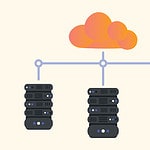[ad_1]
Do you remember when you got your first mobile phone? If you were an early adopter, it probably was the size of a brick! Or was it a flip phone? On the other hand, if you wanted to text, then you had a Blackberry and were way ahead of the curve in terms of tech adoption.
Today, more and more technology has become integrated into the daily workflow of real estate agents. Even the pandemic had a positive impact, if there is one, as it accelerated the adoption of more digital tools by brokers and their agents to empower remote work and remain connected to clients.
Now, the next generation of technology is upon us. It’s coming from the advent of a new service for your smartphone called 5G.
-
What is 5G?
5G stands for 5th Generation Network. 5G follows all the prior network services in its evolutionary chain: 1G, 2G, 3G, and 4G LTE. The biggest difference? Speed.
5G is fast. Not just marginally quicker than 4G – blazingly faster. It’s like comparing the speed difference between a 1965 Volkswagen Beetle and a Model S Plaid Tesla: there is no comparison.
Mobile tech giant Qualcomm offers this historical comparison:
First generation – 1G
The 1980s: 1G delivered analog voice.
Second generation – 2G
The early 1990s: 2G introduced digital voice.
Third generation – 3G
The early 2000s: 3G brought mobile data.
Fourth generation – 4G LTE
The 2010s: 4G LTE ushered in the era of mobile broadband.
-
How fast is it?
With 5G, speeds are possible up to 20 Gigabits-per-second (Gbps) with average data rates running 100+ Megabits-per-second (Mbps). How fast is that? A gigabyte is 1,000 Megabytes per second. That’s ten times faster than high-speed home internet systems that offer 100 Megabyte+ speed.
For comparison, with 100 Megabytes per second, you can download an entire 4K movie in a few minutes. With Gigabyte speed, the same download takes seconds.
The one potential downside is that speeds can slow when more people access the 5G network simultaneously. This is because 5G shares a bandwidth; top speeds suffer when a 5G network is overtaxed. However, 5G can handle significantly more capacity than 4G. As a result, 5G is designed to support a 100x increase in traffic and also offers improved network efficiency over 4G.
-
More 5G benefits
In addition to being significantly faster than 4G and having more capacity, 5G features substantially lower latency than 4G. Why is that important? 5G can deliver more instantaneous, real-time access, almost eliminating any lag time when accessing data.
When 4G LTE was introduced, its breakthrough provided much faster mobile broadband services than 3G. 5G is different. It does more than boost mobile device speeds. Its infrastructure supports new services such as mission-critical communications – more reliable and stable connections for public safety agencies, railway communications, the power grid, and government agencies.
5G also is designed to work better with all of the IoT – Internet of Things – devices, which is already a massive network and growing.
Moreover, 5G can run on different bandwidths, which could allow the connection of device-to-device, enabling mobile devices to communicate with each other without a network.
For the real estate agent on the go, 5G has one more benefit: it makes it easier to find hotspots for your mobile device.
-
Where is it available?
While 5G service is technically available across most of the US, it isn’t everywhere – yet. Access depends on the cell carrier. Even today, 5G hasn’t been rolled out everywhere – yet. While it is technically available in thousands of cities, many only offer the 5G’s low-band network, which delivers much slower speeds, at least for now.
-
What equipment do I need?
To run 5G on your mobile device requires the proper equipment. Unfortunately, none of the older iPhone models—including the iPhone 11, iPhone 11 Pro, iPhone 11 Pro Max, and the iPhone SE— support 5G, and they never will.
For 5G Apple phone fans, you will need an iPhone 12 or higher. For Samsung users, the first 5G-capable smartphone was the Galaxy S10 5G, and now includes 5G versions for the Galaxy Note10, Note10+, Fold, S20, S20+, and S20 Ultra.
Perhaps the most significant long-term impact for agents will come from new home devices for 5G. If you live in a market where 5G top speeds are available, new mobile internet equipment is available that can replace your current home internet network. In addition, with more agents working from home, 5G is expected over time to provide a massive boost to productivity at home from the ability for more agents to gain access to high-speed internet – at potentially a lower cost.
Remember, if you have questions about 5G and have access through your MLS or association to Tech Helpline, our tech experts are only a click, call or text away.
And if you haven’t already, check out the Tech Helpline app for your smartphone, available for iPhones at the Apple App Store and Android phones at Google Play.
[ad_2]


